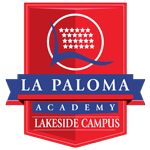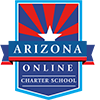Poetry has been around for at least 7,000 years. It began in Mesopotamia around 5000 BC and was most likely used in ancient rituals or for storytelling purposes.
Poetry in English is only about 630 years old. While some poems in English, like Beowulf, are older, the authors are unknown, and the poems were passed on orally rather than being written down.
Most scholars consider the early English writer Geoffrey Chaucer to be the first to create a poem and write it down. The poem, written about 1390, is The Canterbury Tales, and it survives to this day in both its Old English form and in modern-day translations.
The Canterbury Tales takes place in April, so it only seems fitting that April be declared National Poetry Month, which is an excellent opportunity for parents to share the joys of poetry with their children.
Every kid probably starts out loving poetry from the first time they hear a Mother Goose nursery rhyme, and later, by reading The Cat in the Hat or Green Eggs and Ham. And yet, as they get older, many children seem to lose interest in poetry. As adults, we should do everything possible to change that.
The Academy of American Poets was inspired after seeing the success of Black History Month in February and Women’s History Month in March, and established National Poetry Month in 1996 to highlight the legacies and achievements of American poets.
Today, America’s many Poetry Month celebrations during the month of April have collectively become the largest literary event in the world.
What, Exactly, IS Poetry?
Poetry is defined as a form of literature that expresses feelings and ideas while using a distinctive structure and rhythm. There are a variety of different poem types based on the format, rhyme scheme, and subject matter. Some examples of poetry styles are the Ballad, Limerick, and a Haiku. Every April, literary organizations come together to increase the attention which poetry receives and to support poets and poetry.
What’s So Great About Poetry?
- Poetry not only develops language skills, but also has rhythm and sounds that work together for more effective communication. Many of the world’s greatest speakers—Martin Luther King, Jr.; Winston Churchill; Franklin Roosevelt; Barack Obama—have a rhythm and musicality to their speech which increases the power of their message.
- Poetry breaks the rules. Kids don’t often have permission to disobey the rules of English, but poems can break away from sentence structure and can include made-up words, allowing kids a liberating means of expression. The loosening of rules is beneficial to English Language Learners, allowing them to express themselves outside of grammatical confinements.
- Poetry helps develop memorization skills in children. Older kids often have problems memorizing, whether it’s multiplication tables or the Gettysburg Address. Little kids, though, are able to memorize nursery rhymes almost as soon as they can talk. If you can keep kids memorizing poems as they get older, that skill will serve them well throughout their lives.
- Poetry teaches the economy of language. By creating poems with a specific structure, like a sonnet, limerick, cinquain, or haiku, children have to think about each word, finding the most effective way to communicate their ideas, while staying within the poem’s strict form.
Past Poets
Many well-known people have contributed to the successes of poetry and are the reason the support of National Poetry Month spreads more and more each year. Here are a few of the greatest poets in history:
- William Shakespeare is arguably the most well-known poet and playwright in history. He is known for the poetry within his plays like Romeo and Juliet, A Midsummer Night’s Dream, or Othello, and for his book of sonnets.
- Edgar Allan Poe was an American author best known for his poems of horror and mystery. He wrote the famous poems The Raven and Annabel Lee.
- Emily Dickinson became known for her poetry after her death since she spent most of her life as a recluse. Her most famous poems are Hope Is the Thing with Feathers and I’m Nobody! Who Are You?
- Robert Frost was an American poet who is mainly known for his narrative poem, The Road Not Taken. He won four Pulitzer Prizes for poetry in his lifetime.
- Carl Sandburg found beauty in the gritty urban life of early 20th century American cities; however, he also wrote poems for children and won a Pulitzer Prize for his biography of Abraham Lincoln.
- Maya Angelou is one of the more recent poets we celebrate on this day. Her famous literary works include a memoir on her life called I Know Why the Caged Bird Sings and a poem for President Bill Clinton’s inaugural ceremony, On the Pulse of Morning.
In getting kids to love poetry, the worst thing to do is to make reading or memorizing poetry feel like a chore or punishment. There are apps available which will read poems to your kids on your phone or tablet. Or you can find entertaining poems online for kids to read themselves.
Whether you’re a poetry lover or you’re new to the poetic art form, find a poem to inspire you – and your kids – during April’s National Poetry Month.

